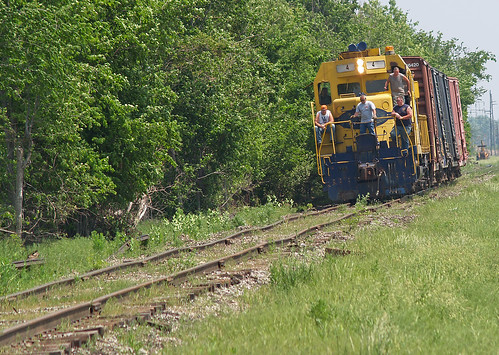GRALISTAIR
Established Member
Electrification is not just about electrification.
OK I know I am probably preaching to the choir here but electrification is more than just about electrification. In the USA they let all their infrastructure decay. In the UK there is a more enlightened attitude and infrastructure does get maintained and renewed.
1. Electrification usually results in quite a lot of infrastructure being maintained and renewed which is getting close to end of life anyway. Re-boring and renewing the Farnworth tunnel is one excellent example. Some will point to this as a reason for high costs but if the infrastructure needs maintaining/renewing anyway it is not really so.
2. Electrification results in faster acceleration, journey time improvements along with capacity improvements
3. Electrification results in lower maintenance cost with less wear and tear on the track etc.
4. Electrification allows us to go to a lower carbon strategy/economy and thus more “green”.
5. Electrification weans us off crude oil which means we are less dependent on world trouble spots such as the Middle East.
6. Electrification totally of certain areas such as Birmingham New Street (all services) will get rid of diesel particulates which have been shown to be troublesome.
7. It will create jobs and the subsequent (albeit reduced) maintenance will help those jobs.
8. It helps the economy to not be too reliant on service industry jobs, but on engineering etc. which is good. This was touted over the years to be a reason the German economy is so strong.
9. It reduces noise pollution. (Onboard too)
Am I being too simplistic? Am I missing any?
OK I know I am probably preaching to the choir here but electrification is more than just about electrification. In the USA they let all their infrastructure decay. In the UK there is a more enlightened attitude and infrastructure does get maintained and renewed.
1. Electrification usually results in quite a lot of infrastructure being maintained and renewed which is getting close to end of life anyway. Re-boring and renewing the Farnworth tunnel is one excellent example. Some will point to this as a reason for high costs but if the infrastructure needs maintaining/renewing anyway it is not really so.
2. Electrification results in faster acceleration, journey time improvements along with capacity improvements
3. Electrification results in lower maintenance cost with less wear and tear on the track etc.
4. Electrification allows us to go to a lower carbon strategy/economy and thus more “green”.
5. Electrification weans us off crude oil which means we are less dependent on world trouble spots such as the Middle East.
6. Electrification totally of certain areas such as Birmingham New Street (all services) will get rid of diesel particulates which have been shown to be troublesome.
7. It will create jobs and the subsequent (albeit reduced) maintenance will help those jobs.
8. It helps the economy to not be too reliant on service industry jobs, but on engineering etc. which is good. This was touted over the years to be a reason the German economy is so strong.
9. It reduces noise pollution. (Onboard too)
Am I being too simplistic? Am I missing any?
Last edited:



